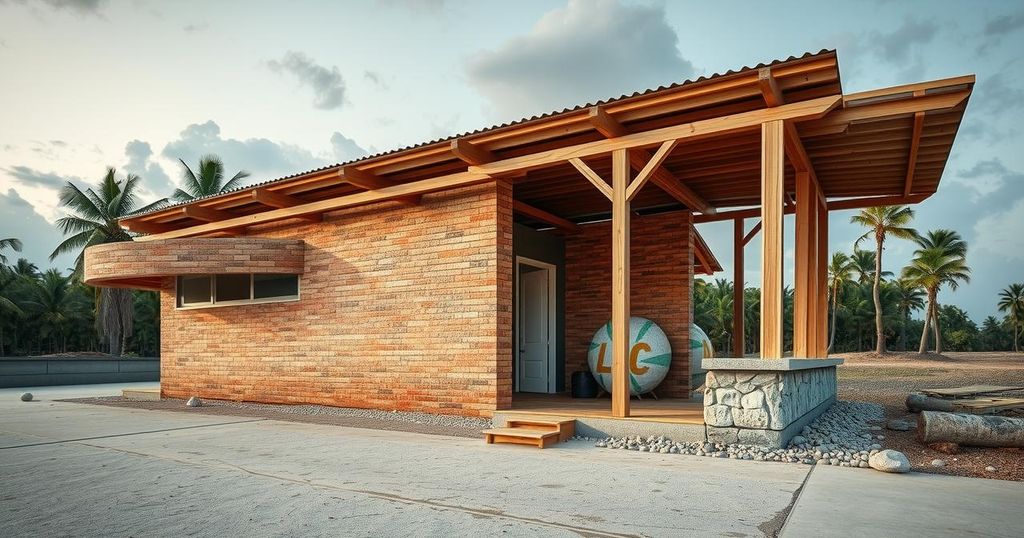Mozambique Initiates Shelter Construction for Cyclone Chido Victims
Mozambique has begun constructing shelters for victims of Cyclone Chido, which caused at least 70 fatalities and significant injuries. Trade and Industry Minister Silvino Moreno outlined the government’s commitment to using resilient materials for reconstruction and enhancing building practices. The cyclone, which affected northern regions of Mozambique, also intensified vulnerabilities in neighboring areas, with humanitarian agencies responding to extensive disaster impacts.
This week, Mozambique initiated the construction of shelters for victims of Cyclone Chido, which devastated northern regions of the country over the past Sunday. The cyclone tragically resulted in at least 70 deaths and left 600 individuals injured, with widespread destruction left in its wake. During a visit to the affected provinces, Trade and Industry Minister Silvino Moreno stated that the government is mobilizing resources to assist those impacted and that international partners are contributing to relief efforts.
Minister Moreno emphasized the importance of constructing homes with resilient materials, stating that the objective is to prevent the destruction of houses built from inferior materials. In many affected areas, the residences were made of mud and reeds, which proved inadequate against the cyclone’s force. Additionally, Moreno noted that there is a pressing need for improved construction training to better equip the populace for future challenges.
Before impacting Mozambique, Cyclone Chido wreaked havoc in Mayotte, a French territory, resulting in significant fatalities and potential threats to vulnerable populations, including asylum seekers and refugees. Following its path through Mozambique, the cyclone also affected southern Malawi, where strong winds and substantial rain led to further destruction of homes and infrastructure.
Mozambique’s meteorological agency has warned of potential additional storms throughout the ensuing three months of the rainy season, urging the populace to enhance their preparedness. As of now, UNICEF reports that about 174,000 people have been affected, a number that may increase as assessments progress. The cyclone has not only damaged homes but has also devastated educational facilities and healthcare infrastructure, with thousands of classrooms and 20 health facilities reported to have been impacted.
UNICEF’s field office head in Zambezia province, Michael Chimedza, mentioned the organization’s efforts to supply emergency items, aiming to provide immediate assistance to 50,000 people. Moreover, he highlighted that UNICEF has allocated funds for local response training. The cyclone’s impact was felt keenly in Niassa and Cabo Delgado provinces, where utility outages affected over 25,000 families and vital infrastructure was damaged, exacerbating the risk of cholera in an already afflicted region.
Cyclone Chido struck Mozambique’s northern regions on Sunday, inflicting widespread damage and loss of life. The cyclone came after previously causing devastation in Mayotte, highlighting its severe impact across multiple areas. This weather pattern exacerbates existing vulnerabilities in Mozambique, particularly in communities that are still recovering from previous disasters. The government’s response includes immediate relief efforts and construction initiatives aimed at mitigating future storm damage, which is crucial in a region where poor housing conditions contribute to disasters’ impacts.
In conclusion, Mozambique is facing significant challenges following the destructive Cyclone Chido, which has caused loss of life, injuries, and extensive infrastructure damage. The government is taking steps to provide immediate shelter and aid to victims while emphasizing the need for improved building practices and construction training. With the looming threat of further storms, preparedness remains a critical focus for both local authorities and international partners, as they work to address the ongoing humanitarian crisis.
Original Source: www.voanews.com




Post Comment